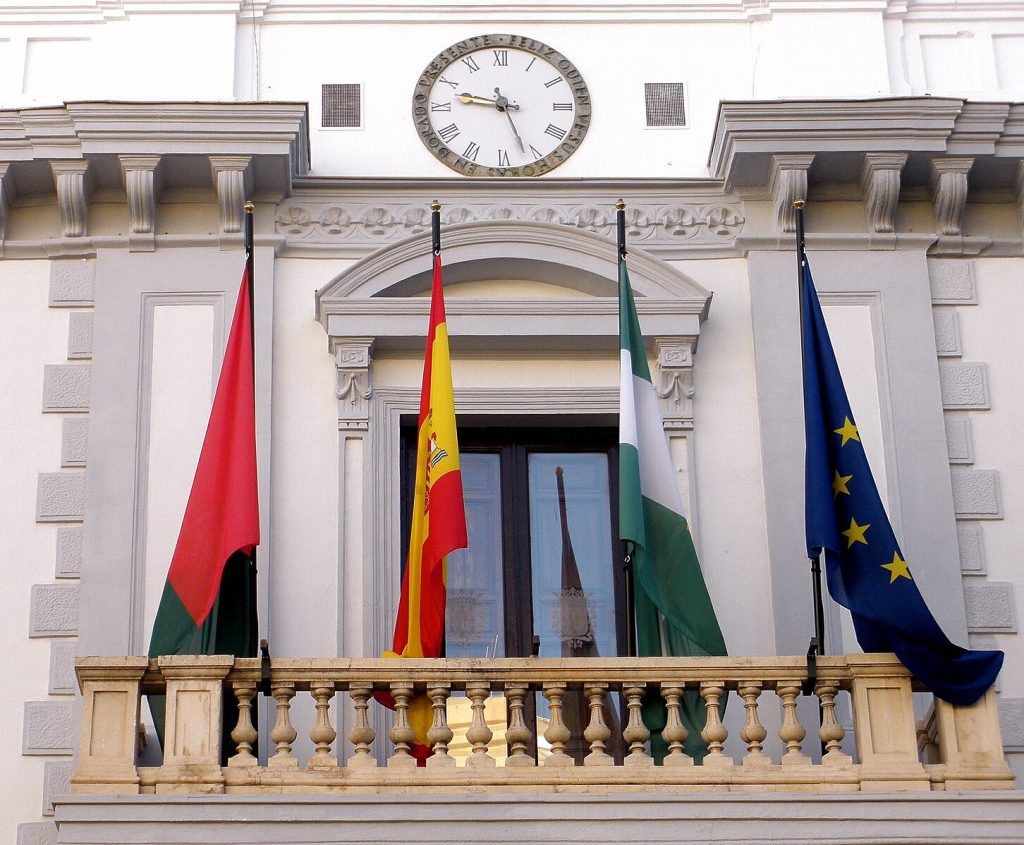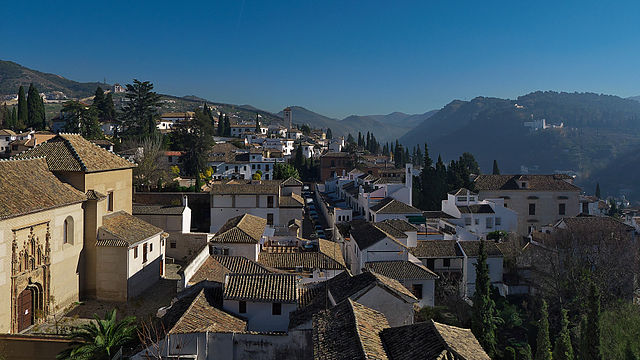IN AN INITIATIVE likely to ripple across the whole of Granada region, the city of Granada has announced a freeze on new tourist rental license applications. The decision remains in place until the end of July. It is fuelled by mounting concerns about the impact of holiday lets on the local community and housing market. It is also causing protests from rental owners, worried about their livelihood.
The announcement from Granada city town hall marks the first such license freeze within the province. It echoes similar measures taken by Málaga earlier this year. It also halted new holiday let licenses, citing concerns over housing availability and community balance.
“We saw this coming because Málaga started it by saying they weren’t going to allow any more holiday lets,” said Mathew Wood of Hola Properties. “While it hasn’t happened in many other municipalities yet, once one makes the decision, it can trigger a domino effect, and then more municipalities are likely to follow.”
Granada’s decision aligns with a broader trend across Spain, where municipalities are increasingly empowered to set their own regulations regarding tourist rentals. This autonomy has led to a patchwork of rules, with some areas taking a more restrictive stance, in response to local pressures, than others.
The discontent in Granada follows protests in other regions of Spain, including Barcelona, the Balearic Islands, and Madrid. All have imposed strict restrictions on what properties can be rented out, and for how long.

Backlash in the Albaicín
In the historic Albaicín district of Granada, the rental license freeze has sparked significant backlash. Homeowners, many of whom rely on income from holiday lets, have expressed their anger and frustration. Protests have erupted, with residents demanding an emergency meeting with the mayor, Marifrán Carazo, to address their concerns. The Albaicín is a key target because it is so densely populated with tourist rentals.
A prominent figure in Granada’s local government and a member of the PP party, Marifrán is a key proponent of the freeze. Her stance is seen by some as politically motivated, given the broader PP party’s influence in similar decisions across other regions of Spain.
This is not a simple issue, and it has many nuances. Granada’s tourism sector is undeniably crucial to the city’s economy. Last year, holiday lets accounted for approximately 45% of the city’s tourism accommodation. However, the town hall is striving to juggle the tourism economy with affordable housing.
“The town hall is trying to find a balance between ensuring access to the property market for locals and maintaining a supply for tourism,” explained Lucy Hayes Logan, of the Tus Alpujarras advice agency.
She adds: “In line with the initiative, inspections of existing tourist rentals are set to increase, with more staff being brought in by the Junta de Andalucía to enforce regulations. This crackdown aims to address illegal holiday lets, which have been a growing concern. Properties operating without the necessary licenses or failing to meet current requirements could face severe penalties, including the revocation of licenses.”

Is Granada really overrun with holiday rentals?
Are private rentals really such a problem in Granada region, which is hardly like Ibiza, where people are renting out caravans for 1,000e per month.
“There’s been a lot of feeling that holiday areas are overrun with holiday lets and driving up prices,” said Mathew Wood. “However, in Granada, only 1.25% of all properties have a tourist license. This compares with Malaga’s 4.12%, Cádiz’s 2.24%, and Almería’s 1.46%. The numbers show that Granada is relatively low.”
Some areas within Granada province exhibit higher concentrations of tourist rentals. In Monachil, which includes the popular Sierra Nevada ski resort, 10% of properties have a tourist license. The Alpujarra region, known for its picturesque white villages, also shows significant numbers: Capileira has a 7.9% holiday rental rate, Carataunas 5.1%, Ferreirola 4.1%, and Soportújar – the witchy-themed village – 3.5%.
On the Costa Tropical, Almuñécar stands out as the main destination, with 4.66% of properties being used for tourist rentals. These figures underscore the regional variations of holiday lets.

An uncertain future
The future of tourist rentals in Granada region remains uncertain. As municipalities such as the city of Granada implement stricter controls, other areas may follow suit. The trend towards more sustainable tourism and balanced housing markets is undeniably gaining momentum across Spain.
“With the Málaga domino having fallen and now Granada city, personally, I think more are going to follow,” Wood remarks.
For now, all eyes are on the upcoming July meeting in Granada, where the town hall will outline its long-term strategy for managing tourist rentals. Homeowners, investors, and tourists alike await the outcome.
Prospective property buyers looking to invest in holiday rentals face some important issues. “Make sure that the property you want to buy already has a valid license, and check that it’s active and correct,” Logan advises. “Get an advocate to verify that the property meets current legislation because requirements can change, and never be afraid to speak to your town hall.”
It has never been so important to take expert advice before forging ahead.

